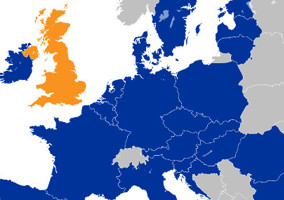Traditionally quoted figures about the number of organisations in the charity sector are completely wrong, says David Ainsworth.
This morning, I read someone writing about the charity sector, and they said there are 160,000 charities in the UK.
This is a pretty commonly quoted figure – you see it everywhere, not least all over the national newspapers – but it’s wrong. By quite a long way.
Next time someone asks you how many charities there are in the UK, here’s the actual answer: nobody really knows, but it’s probably more than 400,000.
There is a serious, fundamental problem to this – quite apart from the fact that it irritates those of us who like to get our numbers right. It means we are significantly undervaluing the sector’s contribution to national life.
I believe the traditional figure is based on the number of charities registered with the Charity Commission. But when you look at the Charity Commission facts and figures page, you see they recognise more than 180,000 charities in England and Wales. Some of those are linked organisations, which share trustees, rather than independent organisations. But they’re still charities.
And the Commission only regulates England and Wales, and there are another 24,000 registered charities in Scotland. Nobody knows how many charities will appear on the Northern Ireland register, because they’re still being signed up. Between 6,000 and 10,000 is the best guess.
So even if we only talk about registered charities, there are well over 200,000.
But not all charities are registered. In fact, lots aren’t. Charities in England and Wales only have to register if they have an income over £5,000, although elsewhere all charities, of any size, have to register.
According to an excellent but little known briefing from the National Audit Office, there are perhaps somewhere over 100,000 charities excepted from registration because they are too small.
There are also separate rules for tens of thousands of scout, guide and cadet groups, tens of thousands more Church of England parishes with incomes under £100,000, and a much smaller number of armed forces charities with incomes under £100,000. These charities are excepted from registration, but are still regulated by the charity regulators.
We don’t know exactly how many there are of these charities. There could be 80,000. No one really knows.
There’s now legislation which requires church charities to register with the Charity Commission by 2021. However it’s questionable whether it will be enacted. The legislation was first introduced in 1996, and it’s been delayed several times since then. The cost of registering thousands of churches will be astronomical, and the Commission doesn’t appear flush with cash, so there is likely to be a problem funding it.
However the Commission could shortly be charging charities for regulation, and these groups would surely have to chip in. So they will have to be registered beforehand.
Finally, there are well over 10,000 exempt charities – bodies which have another primary regulator, and are not registered with any of the statutory regulators.
Unlike the excepted charities, almost all of which are extremely small, exempt charities are usually large organisations.
Most are academies and schools. However the list also includes colleges of higher and further education, housing associations, community benefit societies, friendly societies, common investment funds, museums and other non-departmental public bodies regulated by DCMS.
And then there is Kew Gardens, a non-departmental public body regulated by Defra, which technically occupies a regulatory category all of its own.
Related articles












